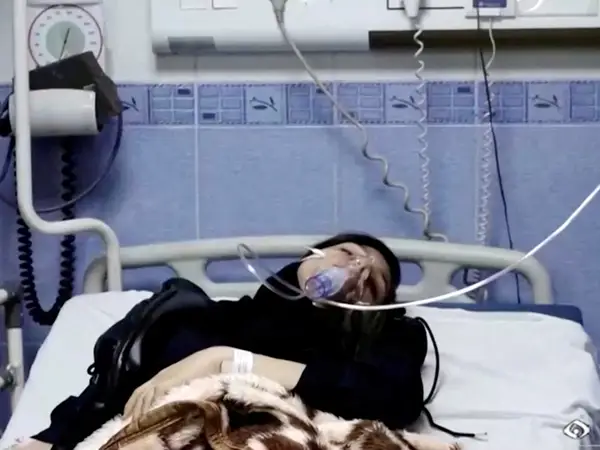An Iranian official claimed Tuesday that several individuals were arrested for gas attacks on girls’ schools as teachers and parents protested in several cities.
Majid Mirahmadi, deputy interior minister for security affairs, said Tuesday that “a number of individuals” were arrested in five provinces in connection with poisoning attacks on girls’ school without disclosing any details regarding these individuals, their motive and their political or religious affiliations.
“A number of cases [in which the activities of individuals in question] were of non-hostile nature were discovered and they were given corrective guidance,” Mirahmadi said in a news program aired by the state-run television.
In other words, individuals who were not hostile to the regime, most probably loyalists, were free to go after receiving a warning, despite conducting what amounted to chemical attacks on children and minors.
The announcement which immediately became controversial was easily interpreted as an admission of the involvement of extremists from within the regime or protected by it.
Actor Reza Kianian has been indicted for sharing this poster on social media which implies involvement of security forces in school poisonings.
Many ordinary Iranians have been suspicious of involvement of the regime itself, or religious extremists protected by the regime, in the school attacks and call the acts “state terrorism”.
Interestingly, so far most officials and state media were claiming that schoolgirls were attacked by foreign intelligence services.
“I’m sorry, but you must be extremely inefficient in ensuring children’s safety if you are right in claiming that students’ poisoning is the work of foreign countries and not your own doing,” a student told ultra-hardliner politician and former nuclear negotiator Saeed Jalili at a panel discussion at Chamran University in Ahvaz Monday while other students cheered him loudly.
Suspicions were fueled by the fact that the first attack on November 30, and several of the subsequent ones, occurred in the religious city of Qom, a bastion of hardliners and fundamentalists and home to most of Iran's Shia seminaries.
The suspicions, which many expressed on social media, grew even stronger when a spate of attacks was reported in Boroujerd in western Iran in late February and then in other cities such as the capital Tehran without any action by the government to stop the perpetrators.
People protesting in Sanandaj in western Iran chanting “Scoundrels, scoundrels” against security forces.
Critics pointed out that authorities had remained silent about the incidents for over two months, were dismissive of the seriousness of the school attacks until they spread to too many schools and too many cities to be ignored. The government also tried to attribute the symptoms to “underlying health conditions” and fear and stress-induced illness and blamed the opposition and foreign countries when they finally acknowledged the attacks. Many also said the attacks could also be revenge against women and the Woman, Life, Freedom protesters.
Critics also argued that the reticence of the many intelligence and security agencies of the country was uncharacteristic as these agencies, such as the Revolutionary Guards Intelligence Organization (SAS) and the interior ministry are always quick in arresting peaceful protesters and dissidents even for posting on social media.
Security forces tried to disperse protesters and arrested several at teachers and parents rally Tuesday in Shiraz.
On Monday, for the first time since the first attack more than three months ago, Supreme Leader Ali Khamenei addressed the issue. “If there are really hands at work, or individuals or groups that are involved in this, this will be a huge crime that cannot be overlooked,” he said, adding that culprits should be given maximum punishment for their crime.
Very uncharacteristically, Khamenei did not attribute the attacks to ‘enemies’ and foreign governments as other officials had been doing in the past couple of weeks. Officials who usually only reiterate what Khamenei says continued accusing ‘the enemies’ of poisoning the schoolgirls even after Khamenei’s brief reference to the issue at a tree-planting ceremony. “These are naturally enemy plots to force schools to shut down and to prevent students’ education,” Education Minister Yousef Nouri said Tuesday.
Meanwhile, Tehran’s prosecutor Ali Salehi on Tuesday announced that an actor, Reza Kianian, reformist politician Azar Mansouri, reformist pundit Sadegh Zibakalam, and managing directors of two reformist newspapers, Shargh Daily and Ham-Mihan, as well as the managing director of Rouydad 24 news website have been indicted for “spreading rumors and lies” about the incidents through the media and social media.
